In Communion with Jesus' Prayer
“Most of us find it almost impossible not to think of prayer as a special activity of life, an art that can be taught or learnt rather as we learn to play a musical instrument. So some of us are quick to feel we are proficient and others that we are painfully handicapped, are missing out on some secret or have some lack in our nature which makes prayer difficult if not impossible for us. We feel there are certain laws governing prayer, techniques to be mastered, and when we have got hold of these, we can pray. Thus we look around for the guru, for the one who has mastered the art and its techniques, and eagerly await to be taught. When we take up a book or article on prayer we shall probably detect, that if we stop to think, that we are looking for the key, the magic formula that is going to put our prayer right, enable us "to make a go" of this mysterious activity we call prayer. All this is proof that we are overlooking the fundamental fact that prayer is not a technique but a relationship, that there is no handicap, no obstacle, no problem. the only problem is that we do not want God. We may want a "spiritual life", we may want "prayer", but do we really want God?”(Ruth Burrows. 'Our Father' 1986) 'The Spirit helps us in our weakness; for we do not know how to pray as we ought, but that very Spirit intercedes with sighs too deep for words. And God, who searches the heart, knows what is the mind of the Spirit, because the Spirit intercedes for the saints according to the will of God. We know that all things work together for good for those who love God, who are called according to his purpose'(Romans 8:26-28). 'I am the vine, you are the branches.
If you abide in me and I in you, you will bear much fruit.
Apart from me you can do nothing'(John 15:5). 'It is no longer I who live, but it is Christ who lives in me.
And the life I now live in the flesh
I live by the faith of the Son of God,
loving me and giving himself for me'(Galatians 2:20). It was Jesus’ grace-filled response that opened the way for God to enter fully into the human condition. In the Prologue to John’s Gospel we are reminded of God bringing about creation through his Word (John 1:1-5), echoing the “Let it be!” of the creation account in Genesis 1. ‘In the beginning was the Word,
and the Word was towards [pros] God,
and the Word was God.
The Word was towards God
in the beginning. All things came into being through the Word,
and without the Word not one thing came into being.
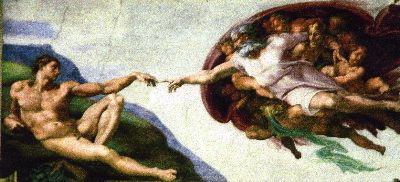
What has come into being in the Word was life,
and the life was the light of all people.
The light shines in the darkness,
and the darkness did not overcome it.’ We are reminded, too, that, though God’s Word (God’s gift of God’s Self) was often rejected, even in Israel (John 1:10-11), there were always those who welcomed God’s gift and lived as God’s children (John 1:12-13). The true light, which enlightens everyone,
was coming into the world.
God’s Word was in the world,
and the world came into being through God’s Word;
yet the world did not know God’s Word. God’s Word came to what was God’s own,
and God’s own people did not accept God’s Word. But to all who received him,
who believed in his name,
he gave power to become children of God,
who were born, not of blood
or of the will of the flesh
or of the will of man, but of God.
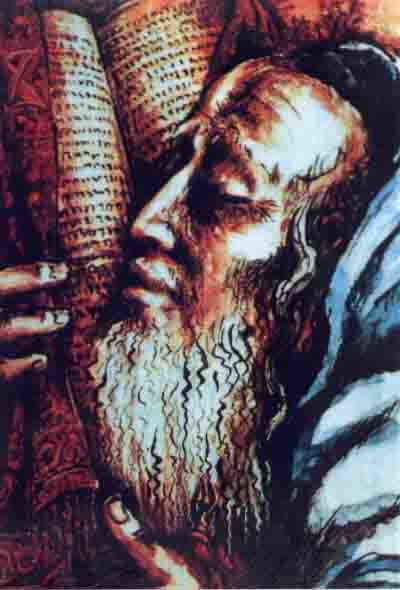
However, it was only, finally, in Jesus, that God’s Word was embraced fully, and entered into the communion with creation that God had always willed (John 1:14). This is what those who knew Jesus experienced when they experienced Jesus’ love, and it is this that they wanted to share with everyone. The Word became flesh and lived among us,
and we have seen his glory,
the glory as of a father’s only son,
full of the gift of truth.
From his fullness we have all received,
grace upon grace.
The law indeed was given through Moses;
the gift truth came through Jesus Christ.
No one has ever seen God.
It is God the only Son, who is in the bosom of the Father,
who has made him known.
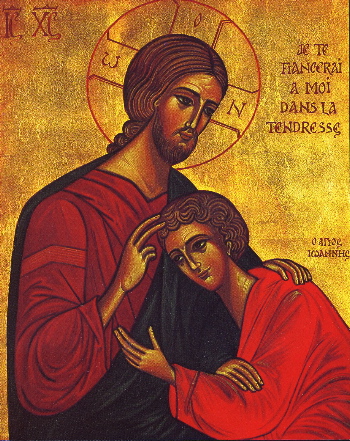
Thanks to Jesus, and through communion with him, we are able to ‘live and live to the full’(John 10:10). Not knowing of Jesus we can hope that our longing for life can be fulfilled. Knowing Jesus we have assurance that our longing is God-given and that God truly wants us to be ‘saved’ (= to experience the fulfilment of our deepest longings in love-communion with God and so with creation). In Paul’s words” ‘in Christ God was reconciling the world to himself’(2Corinthians 5:19).
In John’s words: ‘God so loved the world that he gave his only Son, so that everyone who believes in him may not perish but may have eternal life’(John 3:16). Hence the conviction of Jesus’ followers that they must carry on the mission of Jesus by sharing the Good News with ‘all nations’(Matthew 28:19). It was Jesus’ communion with God that was the source of his life. It nourished and sustained him throughout his life and ultimately in his dying. At the Last Supper, with a broken heart, he said: ‘You will be scattered, each one to his home, and you will leave me alone’(John 16:32). He went straight on to add: ‘Yet I am not alone because the Father is with me.’ From the cross he prayed: ‘Father, into your hands I commend my spirit [my life-breath; the Spirit of communion we have always shared]’(Luke 23:46). This love was the source of the love he shared with everyone who was open to welcome it.

If we look to Jesus and dare to follow him, if we let his response to God fill our hearts and lives, we will know that sin need not have the last word. God is love. God wants us to live to the full. God’s forgiveness, if we open ourselves to welcome it and if we determine to live in God’s love, will set us free from whatever it is that holds us back from living our God-given and God-graced humanity to the full. Because he perfectly responded to grace, Jesus is a gift for everyone. In Jesus, at last, we can see God reconciling the world to Himself (see Colossians 1:20 and 2Corinthians 5:18-19). Living in communion with Jesus we are able to live in such a way that God can be ‘everything to everyone’(1Corinthians 15:28). At the heart of Jesus’ disciples attraction to him was their experience of his special relationship to God. Again and again the Gospels speak of Jesus’ prayer. Having described a busy day in Jesus’ ministry, Mark writes that Jesus left the house to find a secluded place where he could be alone in prayer (see Mark 1:35). Luke tells us that ‘many crowds would gather to hear Jesus and to be cured of their diseases. but he would withdraw to deserted places and pray’(Luke 5:16). Before selecting his twelve disciples, ‘Jesus went out to the mountain to pray, and spent the whole night in prayer to God’(Luke 6:12). It was after he had been praying alone that he asked his disciples who they thought he was (see Luke 9:18). Matthew, Mark and Luke all describe the scene where ‘Jesus took with him Peter and John and James, and went up on the mountain to pray’(Luke 9:28). They go on to describe the transfiguration (Matthew 17:1-8; Mark 9:2-8; Luke 9:28-36). Luke records a prayer that burst from the heart of Jesus: ‘At that time Jesus rejoiced in the Holy Spirit and said, “I thank you, Father, Lord of heaven and earth, because you have hidden these things from the wise and the intelligent and have revealed them to infants; yes, Father, for such was your gracious will. All things have been handed over to me by my Father; and no one knows who the Son is except the Father, or who the Father is except the Son and anyone to whom the Son chooses to reveal him.”(Luke 10:21-22; see Matthew 11:25-27).
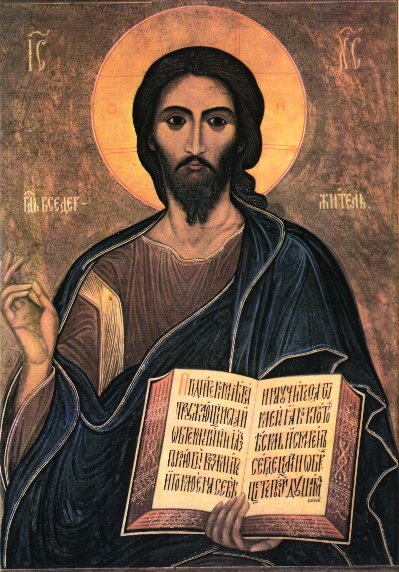
This prayer reveals the special intimacy Jesus experienced with God, whom he addresses as ‘Father’. It was this special relationship that fascinated Jesus’ disciples, and, more than anything else attracted them to him. It was this, too, that scandalised the religious leaders (John 5:18). Jesus knew that his being and his mission were from the Father (John 5:26; 5:30).Luke records that on one occasion the disciples, seeing Jesus at prayer asked him: ‘Lord, teach us to pray’(Luke 11:1).Jesus spoke of God as their Father, too (see Matthew 6:14-15; 6:26; 6:32; 7:11; Luke 11:13; 12:30), and they wanted to share the kind of intimacy with God that was so apparent in Jesus.This intimate communion with God is what John calls ‘eternal life’(see John 3:16; 4:14).Matthew, Mark and Luke describe Jesus’ anguished prayer
in Gethsemani
(see Matthew 26:36-46; Mark 14:32-42; Luke 22:39-46; compare John 12:27).

Jesus’ humanity, but also his faith in God are, perhaps, nowhere shown more poignantly that in his cry from the cross: ‘My God, my God, why have you forsaken me?’(Matthew 27:46; Mark 15:34). It is his faith in God that Luke highlights when he records Jesus’ prayer from the cross: ‘Father, into your hands I commend my spirit’(23:46).No one brings out the intimacy of Jesus with God better than the Beloved Disciple, who leaned against Jesus’ breast at the Last Supper, and stood with Jesus’ mother at the foot of the cross. This is especially clear in his account of the Last Supper.
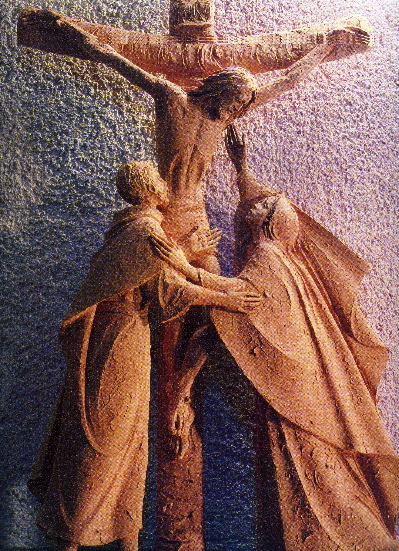
Everything Jesus said or did came from this special communion. John writes: ‘The Father loves the Son and has placed everything in his hands’(John 3:35).His special communion did not protect him from the suffering that is part of the human experience, but it sustained him, and the fruit of this communion was a loving that his disciples had never previously experienced: a love for them, indeed for the world, that flowed from his loving communion with God






